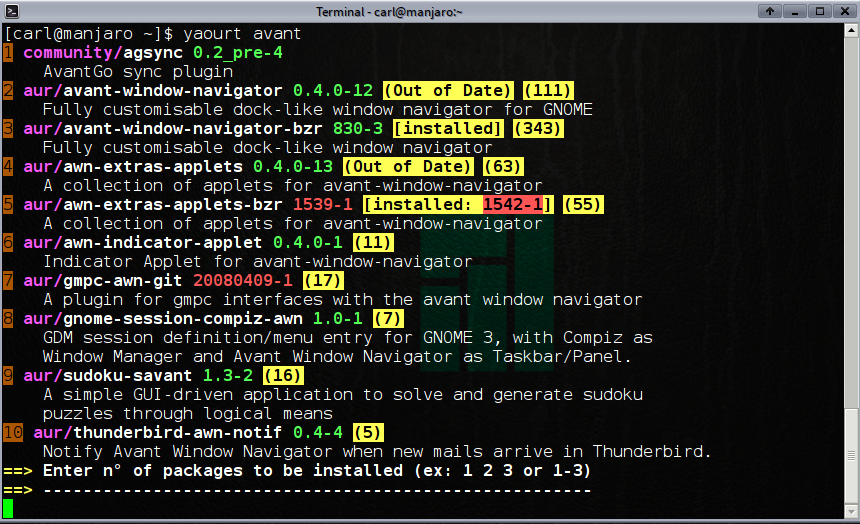Arch User Repository
Views
Actions
Namespaces
Variants
Tools
Overview
Although Manjaro is 100% Arch compatible - being based on Arch itself - it is not possible access the official repositories of the Arch System to download software. Manjaro instead uses its own official repositories in order to ensure that any software packages provided (e.g. system updates and applications) have been fully tested and are completely stable before release.
However, it is still possible to access additional software packages from the Arch User Repository (AUR), which is managed by the Arch community (i.e. users) themselves. Although this repository is unofficial, software packages first placed here are known to make their way into Arch's official repositories if they become popular enough. Unfortunately, as a community maintained repository, using the AUR does still present potential risks and problems. These include the AUR providing:
- Multiple versions of the same packages
- Out of date packages
- Broken or only partially working packages
- Improperly configured packages (e.g. downloading unnecessary dependencies, and/or not downloading necessary dependencies)
- Malicious packages (although extremely rare)
As such, although much (if not most) of the software packages provided by the AUR should work, do not expect the installation process to always be quite as straightforward as when using the official repositories. On occasion, it may be necessary to manually identify and install dependencies yourself after an aborted installation, for example. In addition, there is no guarantee that any installed software will work properly, if at all.
Accessing the AUR
Two packages are required in order to access the AUR, which can be installed in the terminal:
1. The base-developer group package: Rather than downloading pre-compiled software packages for installation, you will instead be downloading the instructions to build and compile them on your system. This group package is therefore required to do this. This should be pre-installed on Manjaro 0.8.1 onwards.
2. Either yaourt or packer: Either of these are used to search and download from the AUR, rather like pacman is used to search and download from from Manjaro's official repositories. Both will also automatically find and download the necessary dependencies for downloads as well (provided the software packages to be installed properly state which dependencies are needed). Which you may chose is entirely down to personal preference:
- yaourt (an acronym for Yet AnOther User Respository Tool) seems to be the most popular choice for users. It uses a multicoloured text layout to improve readability, and compared to pacman or packer, it is slightly simpler to use.
- packer is essentially identical in presentation and use to pacman. However, it does have a small advantage over yaourt, insofar as it allows for users to slightly streamline and simplify the installation process (see below).
- To install the base developer group package and yaourt, enter the command:
sudo pacman -S base-devel yaourt
- To install the base developer group package and packer, enter the command:
sudo pacman -S base-devel packer
Once entered, simply follow the (simple) on-screen prompts to complete the installation process.
Searching for and Installing Software From the AUR
Both yaourt and packer are automatically configured to search the AUR for software packages; there is no need to configure any files or such after installation to make them work. They are also very similar to pacman to use.
yaourt
While the use of the sudo command is a convention when using pacman to install files (e.g. sudo pacman -S [software package name]), it is not necessary with yaourt. Instead, to search for and install software packages from the AUR, the syntax is:
yaourt [software package name]
For example, as illustrated, to search for the Avant Window Navigator, the command entered was yaourt avant. In this instance,
